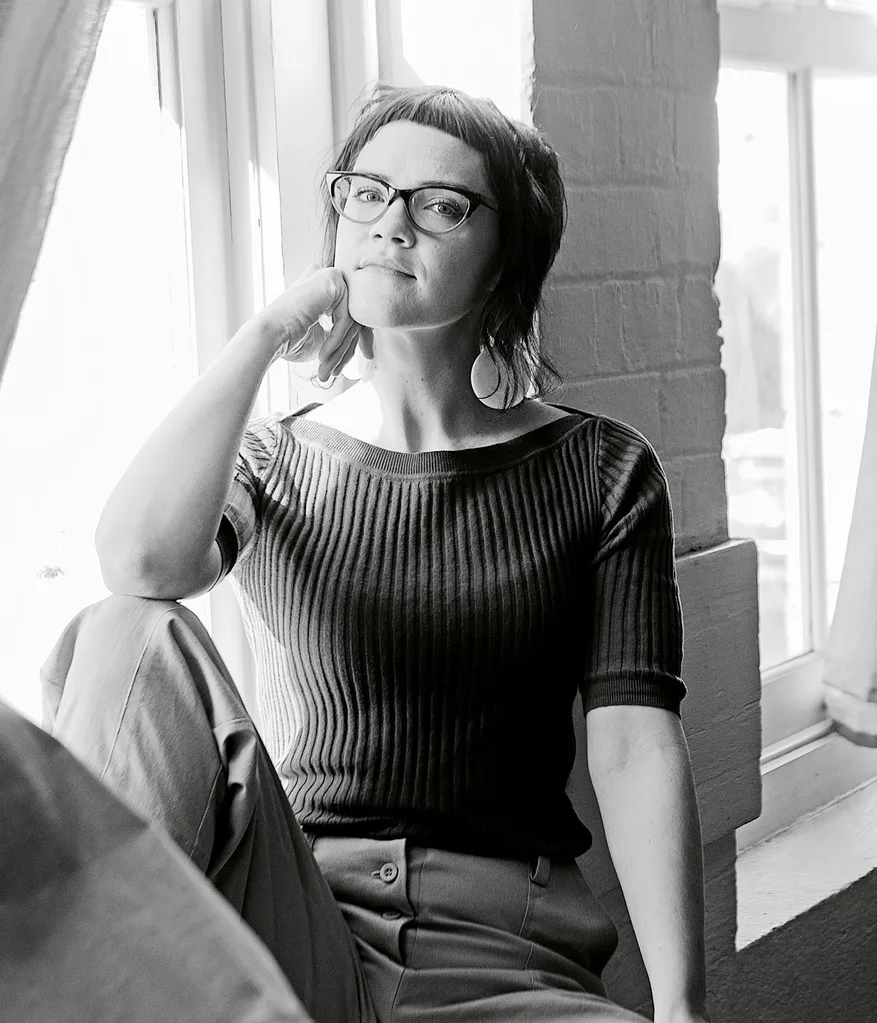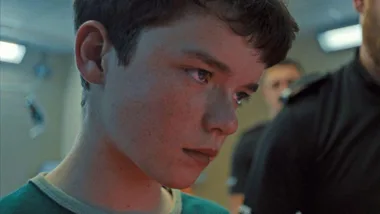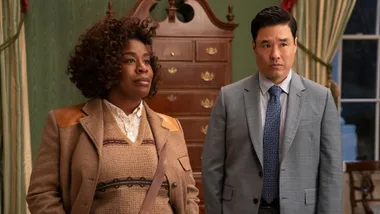It’s been three decades since Julia Roberts stepped into a pair of over-the-knee boots to play working girl Vivian. Here, two Australian sex workers reflect on the legacy of Pretty Woman and how it measures up today.

Tilly Lawless
“Pretty Woman was revolutionary because it depicted a sex worker as desirable and dateable – not just a drug addict”
I remember watching Pretty Woman for the first time as a kid, and wondering if sex workers really did refuse to kiss clients. It seemed silly to me, as a child who hadn’t been sexual with anyone, that you would allow someone to go inside you but not kiss you.
Now watching the film on its 30th anniversary, having been a ‘working girl’ for over six years, it’s the scene that most amuses me. The concepts that a) sex workers have boundaries and b) some things can be more invasive than penetrative sex, are ones that many people struggle to wrap their head around. I do mainly brothel work, and I am constantly coming up against men who complain that I have ‘too many rules’ when I won’t kiss or let them perform oral sex on me. I always explain that to me those things are more intimate than blow jobs or sex. Some are astounded that I have things I won’t do, as if they have paid for me in entirety and should have free rein with my body, but most get it. Those things are the most intimate to them too, and that’s why they want them, because they are chasing the ‘real’ experience.
Watching Vivian as she vivaciously totters across screen, I am simultaneously warmed and saddened by the film. Warmed, because it is wonderful to see a sex worker depicted as desirable and dateable, not just a drug addict or a nameless murder victim, a spectacle to the respectable – as the body of the girl killed on Vivian’s street is to the tourists that photograph it in one of the opening scenes. Saddened, because little has changed for sex workers around the world, particularly over in the US.
Living and working in NSW where sex work has been decriminalised, I am incredibly lucky to do my job safely. The explosion of the internet has given many sex workers the ability to advertise for themselves and negotiate directly with clients, without the need for a middleman. In the US, though, sex workers who live and work together like Vivian and [her best friend] Kit are at risk of being arrested, can be charged with pimping simply for supporting each other, and may need to turn to an exploitative pimp to protect themselves from clients and the brutality of police.
FOSTA [Fight Online Sex Trafficking Act]/SESTA [The Stop Enabling Sex Traffickers Act] are two acts that were introduced in the US supposedly to fight sex trafficking, but in actuality they prevent sex workers from being able to advertise their services. This means that many sex workers are being pushed back to 30 years earlier, to a street corner or vulnerable to a controlling pimp.
One of the opening scenes of Pretty Woman has a man walking down the LA street asking people, ‘What’s your dream?’ The film itself is a reminder of the fact that though the American dream is all about capitalism and being self-made, sex work is not allowed to exist within that dream. Sure, financially profit off anything, except your sexuality. To fit into the American dream, Vivian has to be rescued by a man, which is shown as a fantasy – an impossibility in line with “Cinde-fucking-rella” – when in reality there are many working-class women who date clients or who climb the social ladder, using their beauty, privilege and sexual appeal to men, till they are out of the industry and transcend their beginnings. Think Marilyn Monroe or Blac Chyna.
Something I still appreciate is Vivian’s refusal to be a kept woman/mistress, because she recognised that it was just another form of sex work. In a day and age where people like to separate ‘whores’ [women who are paid to sleep with multiple men] versus ‘sugar babies’ [women who financially capitalise off one man], it was refreshing to see a film that categorised them as the same. When high-powered businessman Edward [Richard Gere] told Vivian he wanted to ‘Get [her] off the streets,’ she clapped back, ‘That’s just geography.’ She would still be entirely financially dependent and subservient to him, with even less freedom than if she was working as she had previously.
In our society, we are still taught to quantify love based on possessiveness, and so the romance is predicated on Vivian leaving the industry. What I would find truly radical, and would love to see, is a rom-com with a sex worker where the partner supports her work, doesn’t expect her to sacrifice it for them, but recognises that work-sex is work-sex, which is different to private-life sex. Now that would be revolutionary.

Gala Vanting
“Pretty Woman is a naive portrayal of sex work – the reality is much more complex”
I’ve been working in the sex industry for more than 15 years, but managed to avoid watching Pretty Woman until recently. If you’re a sex worker, you almost don’t need to. It was the butt of many a brothel girls’ room joke, and the plot is ubiquitous, referenced again and again in popular culture and in critical texts about feminism and sex work.
I suppose I also assumed that a ’90s Hollywood film about sex work was unlikely to have done much research on the topic nor consulted with actual sex workers, which told me that it wouldn’t do justice to the subject. Nothing about us can be any good without us. May Hollywood get the memo asap!
When I finally watched it, I came away feeling like it punched above its weight in its portrayals of sex workers. I saw Vivian as someone who was whore-identified, class-proud, and the right amount of righteous. Kit’s ‘We say who, we say when, we say how much’ mantra feels like a sex worker battle cry.
There are absolutely elements of the story that are resonant with my own experiences, particularly when boundaries shift or are poorly negotiated, or emotional connection changes the terms of engagement, for better or worse. I’ve found myself in situations where the working mode doesn’t quite suit both the provider and the client equally, and the power is perpetually shifting. I know how tricky it can be to determine your service and assert your worth as a novice sex worker. I also know the feeling of ‘rescuing’ a client from his own boringness.
But watching Pretty Woman for the second time, I realised that I’d given it a bit more credit than it perhaps really deserved.
The film is a naive portrayal of sex work, and one that felt like it delivered a little whorephobic jab every few minutes. It does score points for not ending in the death of the sex-working protagonist, which has historically been the common fate of sex workers on screen. But it still can’t resist a nod to the dead-hooker archetype within its first few minutes – to be fair, though, that archetype is very much still with us, and will be for as long as sex-work stigma is perpetuated.
To suggest that Pretty Woman ‘glamorises’ sex work – which is a timeworn argument of anti-sex work pundits – is to shirk responsibility and to see pop culture as a ‘how-to’. In much the same way that porn cannot be our only source of knowledge about sex, this film cannot be our only source of knowledge about sex work.
The danger of the Pretty Woman story for me is the way it collapses all sex-work experiences into a singular narrative. Back in 1990 we were starved for complex representation – and, in many ways, we still are. In the case of Pretty Woman, the ‘saviour’ narrative is perhaps the most insidious. Followed closely by the idea that a sex worker’s ‘no’ is only observable if there’s someone else in the room to hear and/or defend it, or that it can be magically turned into a ‘yes’ if you stalk her in a limo or confess to her your daddy issues, as Edward does.
Some of us enter the industry in rags and stay in them. Some of us find the riches, and some of us lose them. Some of us do feel at times that we want to be rescued, though not at the cost of our humanity, and others just want a dignified transition from one field of work to another where we can ‘explain this gap in our résumé’ without fear of being denied the job.
If we want to know the ‘reality’ of sex work, we need to be comfortable holding more than one truth simultaneously. Following Pretty Woman’s 30th birthday, I hope that media portrayals of sex work can be guided by sex workers to do exactly that.
This article originally appeared in the April issue of marie claire.










